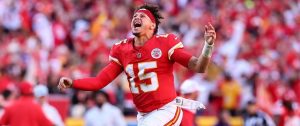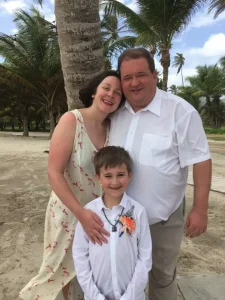Professor Bill Ribbans, a Consultant Orthopaedic Surgeon and Professor of Sports Medicine, works at The County Clinic in Northampton, which is a multi-disciplinary clinic specialising in sports injuries while still dealing with the whole spectrum of orthopaedic problems in patients of any age. In this article, he speaks on cases he sees as an expert witness and how certain sporting injuries require different considerations.
What are common cases that you are instructed on as an expert witness?
I have been undertaking expert witness reports since 1985. There is no doubt that the spectrum of cases I have been asked to provide opinions on has changed over that time from a preponderance of whiplash and lower back problems to more specialised areas corresponding with my main areas of clinical practice. As my area of specific expertise is in sports injuries, knees, ankles and feet, this has been the area where my opinions have been increasingly canvassed.
Why are these cases so common and what could be done by medical professionals to avoid them?
Injuries around the knee and the ankle are very common in the sporting population and the wider public. Injuries to the cartilage and ligaments in the knee and ligaments and tendon injuries around the foot and ankle form a high workload in all orthopaedic clinics. Increasing expertise amongst sports-related doctors, physiotherapists, and strength and conditioning coaches can reduce significantly such injuries by education and proper preparation for sport and exercise.
Are different considerations made for those with sporting injuries?
Having worked in the elite sporting field since 1981, I have come to appreciate that injuries sustained by sportsmen and sportswomen do, on occasion, need different consideration and management. This is particularly pertinent to athletes at the professional and elite level. There are certain injuries which may heal with protracted rest but that is not an acceptable option for professional sports people. Additionally, there can be injuries such as Achilles tendon ruptures which usually heal with conservative treatment but have a slightly increased risk of leaving the calf weaker than if surgical treatment is entertained. Naturally elite sports people wish to ensure the optimal recovery from injury to prolong sporting careers.
Can you share the most challenging part of devising an expert opinion?
The most challenging part of devising an expert opinion is making sure that all relevant information - notes and imaging - is assembled at the time of reaching your conclusions. Trying to re-consider an opinion when later information is forwarded breaks the continuity of your thought processes.
When advising claimants, particularly in cases of potential clinical negligence, I find difficulties if patients, who may have had many medical or surgical interventions, canvas multiple opinions. A number of these opinions can be given by clinicians who do not have the necessary specific expertise. However, their opinions are given significant weight by the patients - which can inflame an already difficult situation.
At what point would you recommend clients to take legal action?
I would always recommend that a patient and a clinician seek to meet and resolve concerns and issues through a face-to-face meeting initially. A second opinion is worth taking. However, it should be from a clinician with sufficient experience to provide meaningful advice. Although clinicians are usually reluctant to criticise colleagues, a second opinion can produce a management plan and some thoughts on whether previous treatments have fallen below an acceptable standard. In such cases legal action should be considered.
Have there been any changes in regulations over your years of practice, which has altered the way in which you work an orthopaedic practice?
During my career as an orthopaedic surgeon there have been numerous changes in practice. The most fundamental has been the change to sub-specialty interest. As a newly appointed consultant in 1991 most consultants undertook the entire range of orthopaedics including paediatric, adult and all sub-specialties including upper limb, lower limb and spine. Nowadays surgeons are more specialised adhering to the golfer, Gary Player, adage “the more I practice, the luckier I get”. There is undoubtedly an increasingly litigious mood amongst patients in Great Britain compared to thirty years ago. As a result, the importance of clear clinical notes, patient information and the consenting process for any interventions has all had to be carefully reviewed and updated. The increasing readiness of patients to seek legal re-dress and report surgeons to the GMC has had a massive impact on Indemnity Insurance premiums causing a number of my colleagues to abandon Private Medical Practice – especially in the sphere of Spinal Surgery. It has created a culture of defensive medicine which can prejudice patient selection for surgery and escalate health costs with “just in case” investigations.
Bill was appointed as an Orthopaedic Consultant Surgeon in 1991 to the Royal Free Hospital in London. In 1996, he returned to his home town to commence work at Northampton General Hospital. Bill entered into full-time Private Practice as Director of The County Clinic in 2011.
In 2005, he was appointed Visiting Professor in Surgical Sciences to the University of Northampton and to a full personal Chair in Sports Medicine in 2010. Bill is Medical Director of the Chris Moody Rehabilitation Centre at Moulton College since its inception.




















